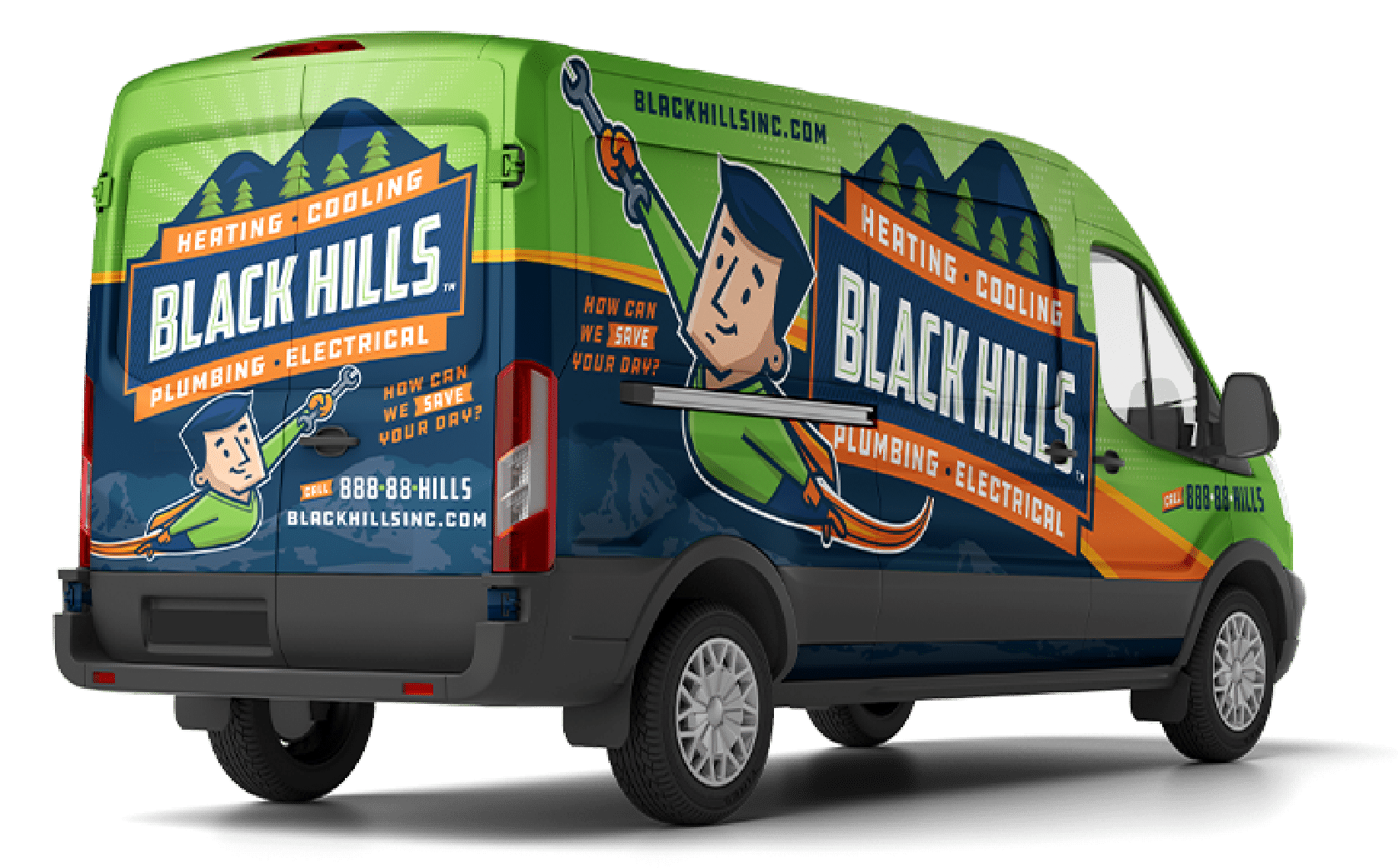FAQs
Heating, AC, Plumbing & Electrical FAQs


Committed to Answering Your Questions
If you still have questions, contact us online or at 888-338-1312.
Heating & Air Conditioning HVAC FAQs
Maintenance & Repair
Filters should be replaced approximately once a month for most people. It will depend on where you live, how much dirt and pet dander are in your home, and what kind of filter you buy. Most standard filters are good for about a month, and some premium filters last up to three months.
- Check ductwork for leaks and other problems.
- Clean the coils of the indoor evaporator and outdoor condenser units.
- Inspect electrical wiring, connections, and controls.
- Check refrigerant levels.
- Inspect condensate drains and drain pans.
- Check and adjust outdoor fan blades and motor in the blower assembly.
- Check refrigerant and compressor tubing.
- Lubricate moving parts as needed.
- Run a full system test.
- Inspect, clean, or replace air filters.
Replacement
An AC unit usually lasts around 10 to 15 years. If you live somewhere hot, this lifespan may be even shorter. Having regular maintenance done is the best way to ensure you get the most out of your unit.
Furnaces generally last around 15 to 20 years, depending on how often your heater is maintained.
Heaters and ACs should be replaced when they reach the end of their service lives because they start to become inefficient, may cause spikes in your energy bill, and may require more frequent repairs. Technology has advanced significantly in recent years. If your units are over 12 years old, new units will significantly boost energy efficiency.
Ideally, your AC and heater are replaced together, guaranteeing that everything works together well: the heater, AC, air handler, and thermostat. Often, with a new furnace or AC, the air handler will need to be upgraded, and potentially some of your ductwork.
Most air conditioning units will last 10 to 15 years if properly maintained. Maintenance is essential for all heating and air conditioning systems. Look out for signs of aging, inefficiency, and high repair costs.
Today’s systems are as much as 60 percent more efficient than systems manufactured ten years ago. If you are concerned about utility bills or are faced with an expensive repair, you may want to consider replacing your system.
Additionally, the Federal government and some local governments offer tax credits for high-efficiency models.
First, make sure that the unit is sized correctly. At Black Hills, we use load calculators to calculate the correct-sized system for your home, which also helps increase efficiency.
Additionally, know your budget parameters and the proposed system’s efficiency. Does the system offer a payback? In other words, will the monthly savings over time offset the cost of the new unit or efficiency option being considered?
Sizing HVAC equipment is very important from a comfort and energy use standpoint. Heating and cooling over-capacity or under-sized equipment will not be as energy efficient as properly matched-capacity equipment.
Indoor Air Quality
Regardless of how well you think you’ve sealed your home, air will circulate from outside and come indoors. So, if you have a strong source of pollutants near your home—such as a busy highway or an airport—you are more likely to have air quality issues inside your home.
What are the most common causes of IAQ problems?
- Not enough ventilation
- Lack of fresh outdoor air/contaminated air entering the building
- Poor upkeep of ventilation, heating, and air conditioning systems
- Dampness and moisture damage due to leaks, flooding, or high humidity
- Occupant activities, such as construction or remodeling
- Indoor and outdoor contaminated air
- Environmental Tobacco Smoke: Whether you have a smoker in your household or neighbors who smoke, this significantly contributes to indoor air pollution.
- Biologicals: This includes bacteria, mold and mildew, viruses, animal dander, pollen, and dust mites. These are more likely to be a problem in buildings with high humidity or water damage.
- Carbon Monoxide: Unvented gas heaters, leaking chimneys or furnaces, gas stoves, or automobile exhaust can all output carbon monoxide. Low levels can cause headaches and flu-like symptoms. High levels can be fatal.
- Respirable Particles: These can come from fireplaces, wood stoves, kerosene heaters, and smoking.
- Organic Gases: This may include household products, including paints, paint strippers, and other solvents; wood preservatives; aerosol sprays; cleansers and disinfectants; moth repellents and air fresheners; stored fuels and automotive products; hobby supplies; and dry-cleaned clothing.
- Pesticides: Products used to kill household pests and lawn and garden products may drift or be tracked into the house.
While the majority of problems related to indoor air pollution are relatively minor, severe issues can develop when ventilation remains poor or the contaminant levels rise too high. Specifically, irritation of the eyes, nose, throat, and lungs is possible, as is the flare-up of asthma, seasonal allergies, and possibly the development of sinuses, lungs, and throat infections.
How much of an effect the pollutants in your house have will vary greatly depending on your family’s age and general health. Some people are very resistant to pollutants and may feel fine.
However, even if you don’t feel the effects of poor air quality, it is taking its toll on your body, forcing nearly every part of you to work harder at sorting out the oxygen needed.
To start, remove any pollutants you can control. Tobacco smoke, paint, solvents, and industrial cleaners are all heavy contaminants not recommended for indoor use.
You can also have your house’s vents and ducts checked and cleaned, as cleanliness and ventilation will impact most homes’ indoor air quality the most. Patching leaks in your roof and basement can reduce the impact of water damage and mold and mildew build-up.
The next step you can take is to get air-quality products installed. Air filters and purifiers can remove dust, pet dander, dust mites, bacteria, viruses, mold spores, and many other allergens from the air. We can perform an air quality test in your home to see if you would benefit from one of these great products.
Plumbing Drains & Pipes FAQs
Clogs are most commonly caused by grease, fat, or hair. For a bathroom sink or shower drain, try a short plumbing snake, which can be purchased at any plumbing section of a home improvement store. If the clog is nearby, it should be easily cleared.
For a kitchen drain, pour three to four tablespoons of liquid degreaser dish soap down the drain. Wait a few moments to let it go down, then put in the sink plug and fill the sink with hot water. Alternatively, you can boil some water. Then, release the plug and let the hot water drain down quickly.
If these home solutions don’t work for you, it’s time to call a plumber to clear your drain.
The most common problem is that the shredding plate is jammed. An object could have gotten stuck inside and jammed the plate, or if you haven’t used it in a long time, the plate can rust in place.
Turn off power to the disposal from the electrical panel. Use a flashlight to identify what may be stuck down there, then use a metal tool like a screwdriver or wrench to try and remove the lodged object. NEVER put your hands on the disposal.
If you can’t detect an object, look at the bottom of the disposal unit. There should be a slot for an Allen wrench (or wrench that came with the unit). Wiggle that back and forth until the plate moves.
If your disposal doesn’t even hum when you turn it on, it could be blocked by a circuit breaker. Check to make sure it didn’t flip a breaker at the electrical panel or a GFCI outlet. You may need to press the Reset button on a GFCI outlet to reset the circuit breaker.
When winter rolls around, and it’s freezing out, the water in your pipes might freeze. The water freezing inside will expand, which may burst your pipe if the water has nowhere to go.
Outdoor spigots should be winterized. Inside, there is a shut-off valve further in your home leading to the spigot. Turn that valve off (usually perpendicular to the pipe), then let any water inside bleed out of the outdoor spigot valve. This inner valve should be close enough to the center of your home to stay warm enough to keep from freezing.
Keep your heater set to at least 50 to 60 degrees Fahrenheit, even when you are away from home. Open up the cabinet doors under your sinks to let warmer air in if you keep your home at 50 degrees. This is especially important if you are away from home or the temperature drops into the teens or below zero.
Additionally, you should do your best to seal any drafts or openings in your home, crawlspace, or basement, especially around windows and doors.
Electrical FAQs
There could be several reasons. The most likely reason is that you have fluctuations in your electrical circuit. You’ll need a professional electrician to troubleshoot why your electrical system has fluctuations.
Learn how to test your light bulb socket with these multimeter instructions.
It is normal for lights to flicker when you turn on a high-power device like a vacuum or a microwave. Your electrical system just takes half a moment to adjust to the new power draw. If your lights flicker more consistently than this, you likely need an updated electrical system.
In this case, your electrical panel or wiring will need to be replaced and upgraded. Many older homes were designed with different power demands from our modern lifestyles and need to be updated to keep up with all the devices and appliances we now enjoy.
It could simply be a loose wire, insufficient power supply, or other appliances on the same circuit that draw too much power.
If you notice that your light switch is hot to the touch, this signals a serious issue that can lead to an electrical fire. The switch may have failed/been faulty, faulty installation/wiring, or it could be overloaded. In any case, call an electrician right away for repairs and keep the switch off until then.
Reviews
Real Comments From Real People
So Very Impressed
- Debbie F.
Diamond Harris was the HVAC Design who came to my house to give me an estimate for a tankless water heater. I was so very impressed. His customer service, extensive knowledge, and professionalism certainly earn the grade of an A+. A true reflection on black hills Inc.'s hiring practice of hiring and retaining only the best employees. My estimate included not only the tankless water heater but the full installation. Diamond Harris is an asset to your company. Black hills inc was referred to me by my parents who had 3 major projects completed by black hills Inc., and loved working with them. With employees like Diamond, I now see why. Such a positive experience. Thank you. Please give my sincere thank-you to Diamond
Awesome Customer Service
- Lillian B.
We spoke to 3 different companies to get an estimate for a new system. Black Hills was the only company that did exactly what they said they would do from the start. I appreciate the text/photo letting me know who would be arriving and he came right on time. Travis was very polite and professional and answered all of our questions. The installation crew was also very quick and professional and cleaned up afterward. Follow-ups to make sure we were happy with service also appreciated. Awesome customer service
Great Service
- Jordon C.
Great service, No BS. Our AC was not keeping up, had a feeling it was because of a leaking coil on the inner unit. Was confirmed by Black Hills Inc. and was set-up with an appointment with a comfort specialist. After the survey with the specialist (Bento Yanez), we sat down and discussed options for replacement, turning out that full replacement with a heat pump/ac/new furnace would be the most efficient cost-effective option. Black Hills was able to access all the previous history on our unit since prior homeowners had used them, they could pull up everything that had previous work done. Looking forward to the replacement unit being installed in only 4 days, after the survey.







CONTACT US
WE ANSWER THE CALL
Looking for an expert’s insight on your next home improvement project? Our helpful team is standing by to answer questions and be of service.